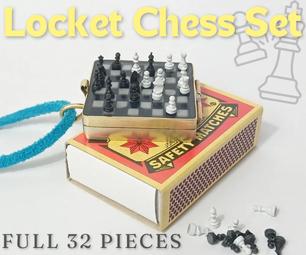Introduction: Glowing Gown :)
In this tutorial, I endeavor to show you how I made my glowing gown :)
I've loved sewing since I was just a little girl. Back then, my specialty was sewing mini clothes for stuffed animals and my brother's G.I. Joe toys. Now, I sew "real people" clothes, especially sundresses and formal gowns, and I enjoy pushing the limits. One day this past summer, I woke up with a crazy idea. What if, instead of just sewing a gown, I made it glow also?
So, I did. The following Instructable will describe just how I did, and how you can too.
I've loved sewing since I was just a little girl. Back then, my specialty was sewing mini clothes for stuffed animals and my brother's G.I. Joe toys. Now, I sew "real people" clothes, especially sundresses and formal gowns, and I enjoy pushing the limits. One day this past summer, I woke up with a crazy idea. What if, instead of just sewing a gown, I made it glow also?
So, I did. The following Instructable will describe just how I did, and how you can too.
Step 1: Gather Supplies:
You'll need:
*A sewing machine
*Basic sewing supplies (i.e. scissors, thread, pins, etc.)
*A pattern
*Cotton fabric
*Loosely woven fabric
*paintbrushes
*Glow-in-the-dark fabric paint
*Glow-in-the-dark thread
*A sewing machine
*Basic sewing supplies (i.e. scissors, thread, pins, etc.)
*A pattern
*Cotton fabric
*Loosely woven fabric
*paintbrushes
*Glow-in-the-dark fabric paint
*Glow-in-the-dark thread
Step 2: Sketch the Dress
First, you'll need to decide what kind of dress you want to sew. I wanted something very modern looking, something that was just a little out of the ordinary. To better formulate a game plan, I decided to sketch it first. I found a free croquis (basic human form used for fashion designing) online, and using it, I sketched out what I wanted my dress to look like.
If you aren't much of a drawer or already know what you want your dress to look like, this step may be skipped :)
If you aren't much of a drawer or already know what you want your dress to look like, this step may be skipped :)
Step 3: Choose a Pattern:
Next, you'll need a pattern. You can either buy one, or if you are an especially brave soul, you can make one.
For my dress, I chose a combination of both. If you are able to find a pattern that works, then by all means, use that. Many times, you can find a perfectly suitable pattern in stores or online. But this time, I couldn't find a pattern that exactly matched what I wanted. So I used Simplicity 3878 as a stock pattern, as a starting point. (A stock pattern is a fairly simple pattern that is easy to alter for a wide variety of dresses. My two personal favorites are Simplicity 3878 and 4070.) Then I significantly shortened the skirt, and I also altered the neckline to include a strap that wrapped around the neck. Because the neckline alteration was so drastic, I traced the original pattern on butcher paper and then sketched my changes on top of it. This way, I was able to experiment with the pattern before cutting it out from the fabric.
If you want to completely start from scratch and make your own pattern, then I applaud you. Pattern making is not as difficult as it might seem, but it can be a bit tricky. There are some very excellent tutorials online.
For my dress, I chose a combination of both. If you are able to find a pattern that works, then by all means, use that. Many times, you can find a perfectly suitable pattern in stores or online. But this time, I couldn't find a pattern that exactly matched what I wanted. So I used Simplicity 3878 as a stock pattern, as a starting point. (A stock pattern is a fairly simple pattern that is easy to alter for a wide variety of dresses. My two personal favorites are Simplicity 3878 and 4070.) Then I significantly shortened the skirt, and I also altered the neckline to include a strap that wrapped around the neck. Because the neckline alteration was so drastic, I traced the original pattern on butcher paper and then sketched my changes on top of it. This way, I was able to experiment with the pattern before cutting it out from the fabric.
If you want to completely start from scratch and make your own pattern, then I applaud you. Pattern making is not as difficult as it might seem, but it can be a bit tricky. There are some very excellent tutorials online.
Step 4: Choose the Fabric and Sew the Dress:
Next, you'll need to choose your fabric.
I chose a plain white cotton broadcloth for the lining. You want something that will hold up and not be too thin, but you don't want something that will have the flexibility of a Panzer tank either. In a word: pick something that isn't too thin OR too stiff. For my dress, I bought 3 yards of fabric and used a little over 2. Yours may be different, depending on what style you choose. Looking at the back of patterns that are similar in style to your dress is probably a good place to start, because they tell you how much fabric to buy. But when in doubt, it's always best to buy a little more than you think you will need.
For the overlay, you want something very...billowy...wispy...almost ethereal. For this, you can choose a synthetic netting or tulle. For my dress, I went with something a little more obscure. I used cheesecloth. Why? I will explain why in the next step.
After choosing your fabric, you will need to cut it out using your pattern and sew it on a machine. Most patterns come with detailed instructions of how to sew the garment. However, if you ever hit a snag here, there are plenty of helpful tutorials online.
I chose a plain white cotton broadcloth for the lining. You want something that will hold up and not be too thin, but you don't want something that will have the flexibility of a Panzer tank either. In a word: pick something that isn't too thin OR too stiff. For my dress, I bought 3 yards of fabric and used a little over 2. Yours may be different, depending on what style you choose. Looking at the back of patterns that are similar in style to your dress is probably a good place to start, because they tell you how much fabric to buy. But when in doubt, it's always best to buy a little more than you think you will need.
For the overlay, you want something very...billowy...wispy...almost ethereal. For this, you can choose a synthetic netting or tulle. For my dress, I went with something a little more obscure. I used cheesecloth. Why? I will explain why in the next step.
After choosing your fabric, you will need to cut it out using your pattern and sew it on a machine. Most patterns come with detailed instructions of how to sew the garment. However, if you ever hit a snag here, there are plenty of helpful tutorials online.
Step 5: Make It Glow:
Now it's time for the fun part: making the dress glow.
For this, I used two things.
The real star of the show was TULIP glow-in-the-dark fabric paint. I used a little under two bottles of the stuff, and I got it at my local JoAnn's. After I sewed the initial garment, I painted the cotton broadcloth with two coats of the stuff and let it dry.
Then, I overlaid the now-glowing cotton dress with a covering of tattered cheesecloth. Into this cheesecloth, I wove glow-in-the-dark thread. I ordered mine online, but I have seen it sold in stores since.
After painting it with glowing paint and weaving in the glowing thread, I added a few frills to the gown. I made some rosettes out of the leftover fabric scraps, made them glow also, and attached them to the bodice and neck strap.
For this, I used two things.
The real star of the show was TULIP glow-in-the-dark fabric paint. I used a little under two bottles of the stuff, and I got it at my local JoAnn's. After I sewed the initial garment, I painted the cotton broadcloth with two coats of the stuff and let it dry.
Then, I overlaid the now-glowing cotton dress with a covering of tattered cheesecloth. Into this cheesecloth, I wove glow-in-the-dark thread. I ordered mine online, but I have seen it sold in stores since.
After painting it with glowing paint and weaving in the glowing thread, I added a few frills to the gown. I made some rosettes out of the leftover fabric scraps, made them glow also, and attached them to the bodice and neck strap.
Step 6: Wear It!
Now you're all done! You've sewn a dress and made it glow. You'll light up a room just by entering it...literally.
Cheesy? Maybe, but there you go.
Have fun with it!
Cheesy? Maybe, but there you go.
Have fun with it!

Participated in the
Fashion Contest







